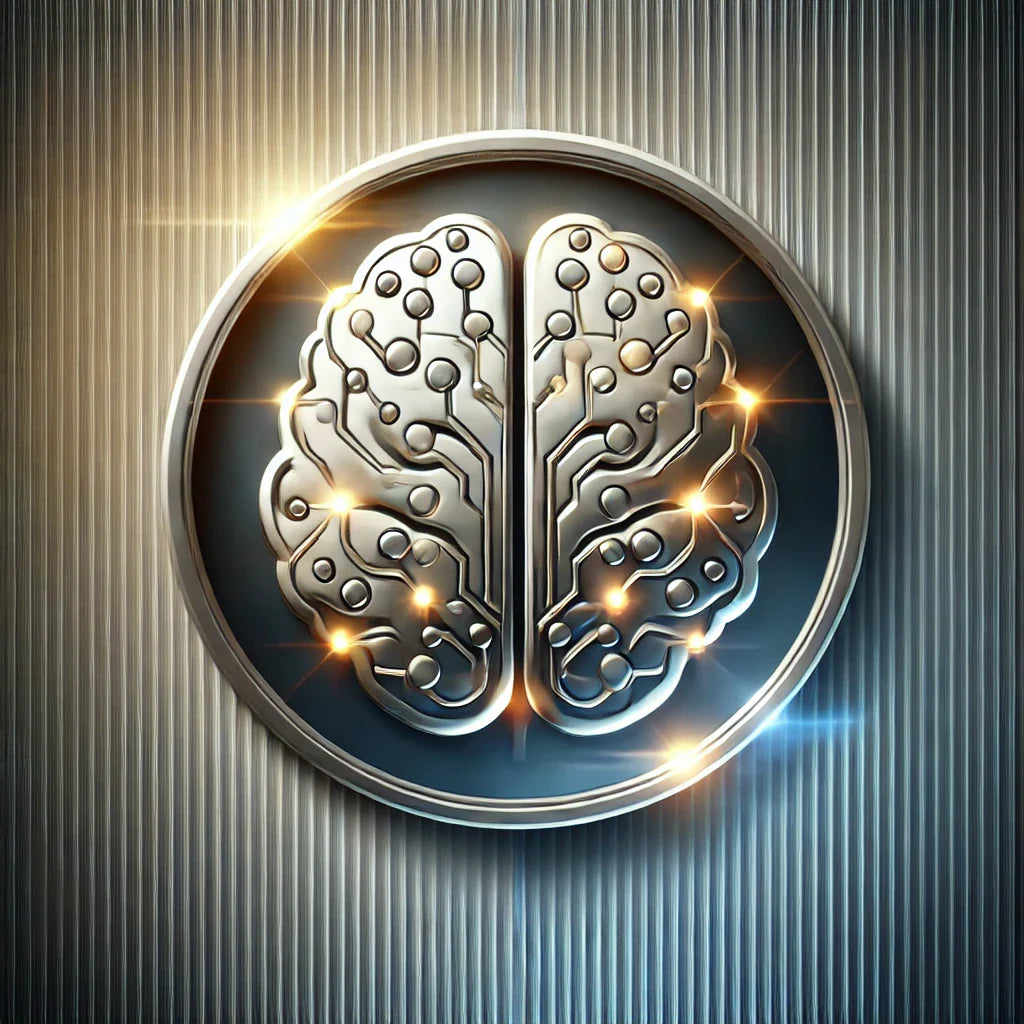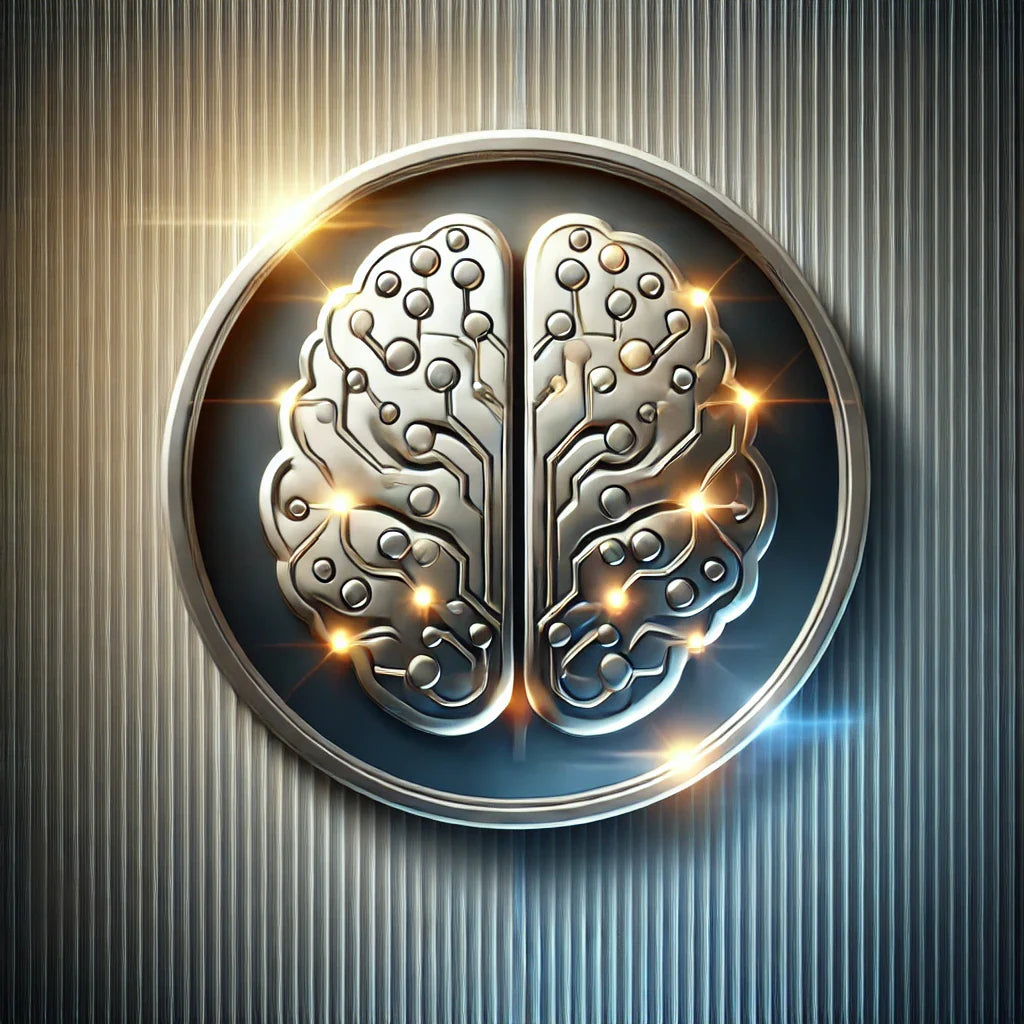LIMITED-TIME OFFER: CALL NOW FOR EXCLUSIVE PRICING ON OUR BEST-SELLING WELLNESS EQUIPMENT
LIMITED-TIME OFFER: CALL NOW FOR EXCLUSIVE PRICING ON OUR BEST-SELLING WELLNESS EQUIPMENT

Iodine Deficiency: Causes of Brain Fog and Low Dopamine
July 27, 2024 4 min read

Introduction
Ever felt like your brain is in a fog, making it hard to concentrate or think clearly? Or perhaps you’ve experienced a persistent lack of motivation and low energy levels? These symptoms might be more than just occasional slumps—they could be signs of iodine deficiency. But how exactly does iodine, a seemingly simple nutrient, play such a crucial role in brain function and dopamine production?
Understanding Iodine Deficiency
What is Iodine Deficiency?
Iodine deficiency occurs when the body doesn't get enough iodine, an essential mineral required for the production of thyroid hormones. These hormones are vital for many bodily functions, including metabolism, growth, and brain development.
Common Causes of Iodine Deficiency
Iodine deficiency can result from insufficient dietary intake, certain environmental factors, and inadequate iodine content in the soil where food is grown. Areas far from the sea often have lower iodine levels in the soil, leading to lower iodine levels in locally grown foods.
The Role of Iodine in Brain Health
Iodine and Thyroid Function
Iodine is critical for the synthesis of thyroid hormones, which regulate many aspects of metabolism and play a significant role in brain development and function. Without sufficient iodine, the thyroid gland cannot produce these hormones effectively, leading to hypothyroidism and related health issues.
Impact on Cognitive Function
Thyroid hormones are essential for brain development, especially during pregnancy and early childhood. Even mild iodine deficiency during these critical periods can result in significant cognitive impairments and developmental delays.
Brain Fog: Symptoms and Causes
Defining Brain Fog
Brain fog is characterized by confusion, forgetfulness, and a lack of focus and mental clarity. It’s a common symptom reported by individuals with iodine deficiency.
How Iodine Deficiency Contributes to Brain Fog
When iodine levels are low, thyroid hormone production decreases, leading to hypothyroidism. Hypothyroidism can cause a slowdown in various bodily functions, including brain activity, resulting in brain fog. This condition impairs cognitive functions such as memory, concentration, and the ability to process information quickly.
Dopamine: The Motivation Molecule
Understanding Dopamine
Dopamine is a neurotransmitter that plays a key role in motivation, pleasure, and reward. It helps regulate mood, focus, and energy levels. Adequate dopamine levels are essential for maintaining a sense of well-being and drive.
Symptoms of Low Dopamine Levels
Low dopamine levels can lead to symptoms such as fatigue, lack of motivation, feelings of apathy, and even depression. It can make daily activities feel burdensome and affect overall productivity.
How Iodine Deficiency Lowers Dopamine Production
Mechanisms Behind Low Dopamine
Iodine deficiency affects the thyroid gland's ability to produce thyroid hormones, leading to hypothyroidism. Thyroid hormones influence the brain's neurotransmitter systems, including dopamine. Reduced thyroid function can result in lower dopamine production, contributing to symptoms of low motivation and energy.
Connection Between Thyroid Hormones and Dopamine
Thyroid hormones play a role in the development and function of the nervous system, including the regulation of dopamine production. Without adequate thyroid hormones, dopamine synthesis is impaired, leading to a cascade of issues affecting mood, motivation, and cognitive function.
Addressing Iodine Deficiency
Dietary Sources of Iodine
Incorporating iodine-rich foods into your diet is a primary way to prevent and address iodine deficiency. Foods such as seaweed, fish, dairy products, and iodized salt are excellent sources of iodine. Note that iodized salt is not the best source of iodine, as it evaporates out soon after the package is opened.
Iodine Supplementation
In some cases, dietary intake alone may not be sufficient, and iodine supplements might be necessary. Iodine can be taken orally, but perhaps the best way is as a liquid applied on the inner wrists or the bottom of the feet for maximum absorption.
Types of Iodine to Consider
When purchasing iodine, it's crucial to ensure that the product contains both iodine and iodide, as your body requires both forms. Iodine is needed by breast tissue, while iodide is essential for thyroid function. Contrary to some sources, your body cannot convert supplemental iodine to iodide.
It's also important to understand the difference between milligram (mg) and microgram (mcg) doses. Most health practitioners, both mainstream and integrative, recommend iodine in mcg doses.
Recommended Forms
- Performance Lab NutriGenesis Iodine: This product is highly recommended for its purity and high bioavailability.
- Lugol’s Liquid: Available in 2% and 5% solutions. The 2% solution provides 2.5 mg per drop, while the 5% solution offers 6.25 mg per drop.
- Iodoral: This is Lugol’s formula in pill form, available in 12.5 mg and 50 mg doses.
- Biotics Research Iodizyme: Contains 12.5 mg of iodine/iodide per tablet.
- Tri-Iodine by Vitaminlife: Offers 12.5 mg of iodine/iodide per tablet.
Forms Not Recommended
- Nascent Iodine: This form provides iodine in its atomic state at very low doses, insufficient for detoxifying heavy metals, fluoride, bromine, and chloride or for tissue saturation.
- Iosol: Contains iodine only and suffers from the same issues as nascent iodine with its micro doses.
- Prolamine Iodine: Contains 3 mg of iodine and 20 mg of calcium, which may be too low to effectively detoxify the body and saturate tissues.
- Various Brands: Brands like Pure Encapsulations, Solaray, Source Naturals, Progressive Labs, and NOW offer iodine only in mcg doses, which is not ideal for significant health benefits.
- Kelp: Kelp products are not recommended due to their low and variable iodine content and potential contamination with toxins like arsenic and halides.
How to Take Iodine and How Often
Taking iodine correctly ensures you reap its full health benefits. It is best absorbed when taken on an empty stomach, typically 30 minutes before a meal or two hours after eating. For liquid forms like Lugol's solution, mix the recommended drops with a glass of water.
If you're using a pill form like Iodoral, simply follow the dosage instructions on the packaging. Most health practitioners suggest starting with a lower dose and gradually increasing it as your body adjusts. Typically, a daily dose of iodine ranges from 150 mcg to 300 mcg for general health, but therapeutic doses can be much higher.
Conclusion
Iodine is a small but mighty nutrient essential for brain health and dopamine production. Ensuring adequate iodine intake can help prevent brain fog, improve cognitive function, and maintain healthy dopamine levels. By paying attention to
Leave a comment

Easily Disable 5G on Your Phone for Health and Longevity (Android)
April 20, 2025
Unfortunately, newer Android models like the Samsung S25 have removed easy access to disable 5G from the standard settings menu. But the method shown here circumvents that limitation and gives you full control of your device's network connection in a few free, easy steps.

Natural Remedies to Remove Neurospora Sitophila Mold from the Body
February 18, 2025
Neurospora sitophila is a red/orange mold that can colonize the body, particularly the sinuses and brain, leading to chronic inflammation, neurological symptoms, and respiratory distress. Removing it requires a comprehensive natural approach that includes antifungal treatments, sinus cleansing, detoxification, immune support, and environmental control.

Brain Health as the Ultimate Success Multiplier, Part 5: How Successful People Can Proactively Safeguard Their Health
February 17, 2025
Success isn't a product of willpower and ambition alone—it requires a strong foundation of physical and mental well-being. Yet, many high achievers only begin prioritizing their health after encountering burnout, cognitive decline, or unexplained fatigue. The good news? Health deterioration is often preventable, and brain function can be optimized with the right strategies.

Brain Health as the Ultimate Success Multiplier, Part 4: The Multiple Health Assaults That Hinder Potential
February 17, 2025
While ambition, talent, and discipline are essential components of success, they can only go so far when the body and brain are under attack. Numerous health assaults, often unnoticed or underestimated, silently chip away at the potential of even the most driven individuals. These assaults don't just cause occasional fatigue or brain fog—they can derail entire careers, diminish creative capacity, and leave otherwise capable people struggling to perform at their peak. Understanding these hidden health disruptors is crucial for anyone seeking long-term success.

